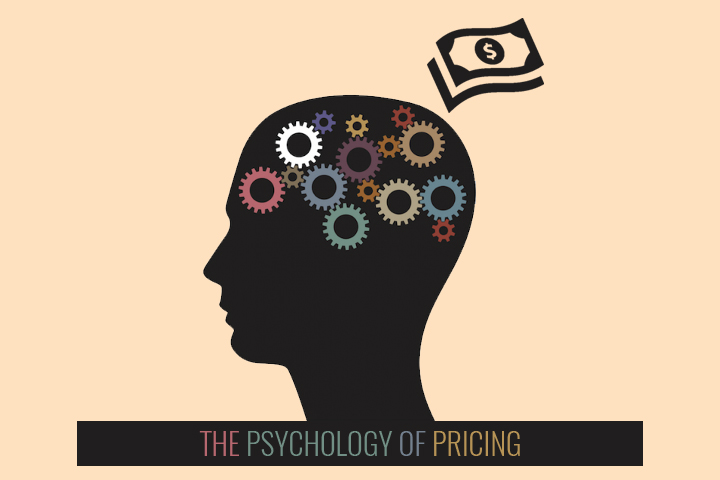
Setting your prices isn’t just about math — it’s about mindset. Sure, you need to know your costs, overhead, and what the market bears. But to truly charge what you’re worth, you must understand the psychology behind pricing — both yours and your customers’. 🎯🧠
Far too many power washing business owners underprice their services out of fear, not strategy. They’re afraid of losing the job. They assume lower prices equal more clients. But in reality, low prices can drive customers away just as easily as high ones — and they definitely drive down your profit and motivation. 😓
This article will walk you through the psychological side of pricing: how to position yourself with confidence, attract better clients, and get paid what you truly deserve. 💪💰
💡 1. People Buy Based on Perceived Value, Not Cost
Here’s the truth: Your price is a signal.
To many customers, your price tells them:
- How professional you are
- How experienced you are
- Whether you’re trustworthy
- If the results will be high-quality
A customer looking for a power washing company isn’t comparing technical specs. They’re comparing how your brand makes them feel.
🧠 If you’re too cheap, they assume you’re:
- Inexperienced
- Using low-grade equipment
- Desperate for work
- Risky
On the flip side, a higher price signals:
- Confidence
- Expertise
- Quality results
- Professionalism
⚖️ Example:
Customer sees two quotes:
- $149 from “Joe’s Quick Wash” (no website, casual text reply)
- $279 from “Precision Power Clean” (branded email, itemized estimate, guarantee)
Which one feels safer?
Most customers will pick the higher-priced provider when the value is clearly communicated.
🔢 2. Use Tiered Pricing to Empower the Buyer
Give customers three pricing options, not just one. This is a powerful psychological tactic called the “Goldilocks Principle.” 🧠🍲
- Low Option (Basic): A no-frills service at your minimum viable price.
- Middle Option (Standard): Your core service, slightly enhanced.
- High Option (Premium): Full package with extras (e.g., roof cleaning, window rinse, post-wash treatment).
Most people will choose the middle tier. It feels safe — not cheap, not excessive.
This lets you:
- Raise your average ticket
- Avoid being haggled on price
- Make the customer feel in control of the choice
🎯 Pro Tip: Position the middle tier as the best value, and make the low tier feel slightly inadequate.
🛑 3. Don’t Compete on Price Alone — It’s a Race to the Bottom
If you’re trying to undercut everyone else in town, you’re not building a business — you’re building a prison. 🧱
Someone will always go lower. But you’re not in this to be the cheapest — you’re in this to deliver results and build trust.
Instead of competing on price:
- Compete on service
- Compete on professionalism
- Compete on reliability
- Compete on safety and knowledge
💬 Educate your clients about what’s included in your pricing — most have no idea what goes into power washing:
- Equipment maintenance
- Insurance and licensing
- Travel and setup time
- Environmental safety
- Post-wash inspection
- Long-lasting results
Once they understand, price objections disappear.
🔒 4. Anchor Your Price with a Higher Reference
Pricing is all about context. When people hear a number, they judge it based on what came before.
Use price anchoring to your advantage.
📍Example:
Instead of saying:
“This driveway wash is $225.”
Say:
“Some of our customers opt for a full house and driveway combo, which runs around $575. But if we’re just doing the driveway, it’ll be $225.”
Suddenly, $225 seems reasonable — even cheap — in contrast to $575.
This tactic works because humans don’t evaluate prices in a vacuum. They need a comparison point.
🗓️ 5. Stop Charging by the Hour — Price by the Job
Hourly pricing kills your profits and punishes your efficiency.
Let’s say you get really good at your job and clean a driveway in 45 minutes. If you’re charging $75/hour, you’ve just made… about $56. 😬
But if you quote $225 for the job — and do it in 45 minutes — your rate just jumped to $300/hour.
Clients don’t care how long it takes. They care about:
- The outcome
- The convenience
- The experience
💡 Focus on what they’re buying: a clean surface, curb appeal, and saved time. Not your labor.
🔄 6. Reframe Your Price with Monthly or Long-Term Value
Help customers see your price not as an expense — but as an investment.
🧠 Example:
Instead of:
“It’s $350 for this siding wash.”
Say:
“At $350, this wash will keep your siding looking great for 10–12 months. That’s less than $30/month for a clean, fresh home all year.”
Framing this way helps the customer rationalize the price — and compare it to other recurring expenses (cable, gym memberships, etc.).
📸 7. Your Brand Justifies Your Price
If you want to charge premium rates, you need a premium image to match.
Ask yourself:
- Does your website look professional?
- Do your estimates look polished and detailed?
- Are your reviews strong and recent?
- Do you show up with clean equipment and uniforms?
- Do you communicate quickly and clearly?
All of this tells the customer, “I can trust this person.” And trust leads to higher prices without resistance.
📸 Tip: Use before-and-after photos to show value visually — they do more than words ever could.
Browse Amazon For Camera Setup Equipment For Before And After Photos
💬 8. Be Confident When You Quote
Customers can sense hesitation — and they’ll challenge it.
When someone asks for a price, state it clearly and confidently:
“This job comes to $385, and that includes a full siding wash, gutter rinse, and front entry detail. We also back our work with a satisfaction guarantee.”
No apologies. No nervous laugh. No asking, “Is that okay?”
Say it, shut up, and let them respond. Confidence closes deals. 😎
🧽 Final Thoughts: You Deserve to Get Paid
Here’s what most power washing pros need to hear:
You are not just spraying water.
You are not “just a cleaner.”
You are a skilled technician offering a valuable transformation.
Your time, equipment, experience, and results are worth something — and your prices should reflect that.
When you understand the psychology of pricing:
- You stop second-guessing yourself
- You attract better clients
- You earn more while working smarter
- You feel proud of every quote you send
So the next time you go to price a job, remember: your goal isn’t to be cheap — it’s to be the best.
And the best? 💵 They charge accordingly.
Browse Amazon Here For Top Rated Power Washers And Accessories






